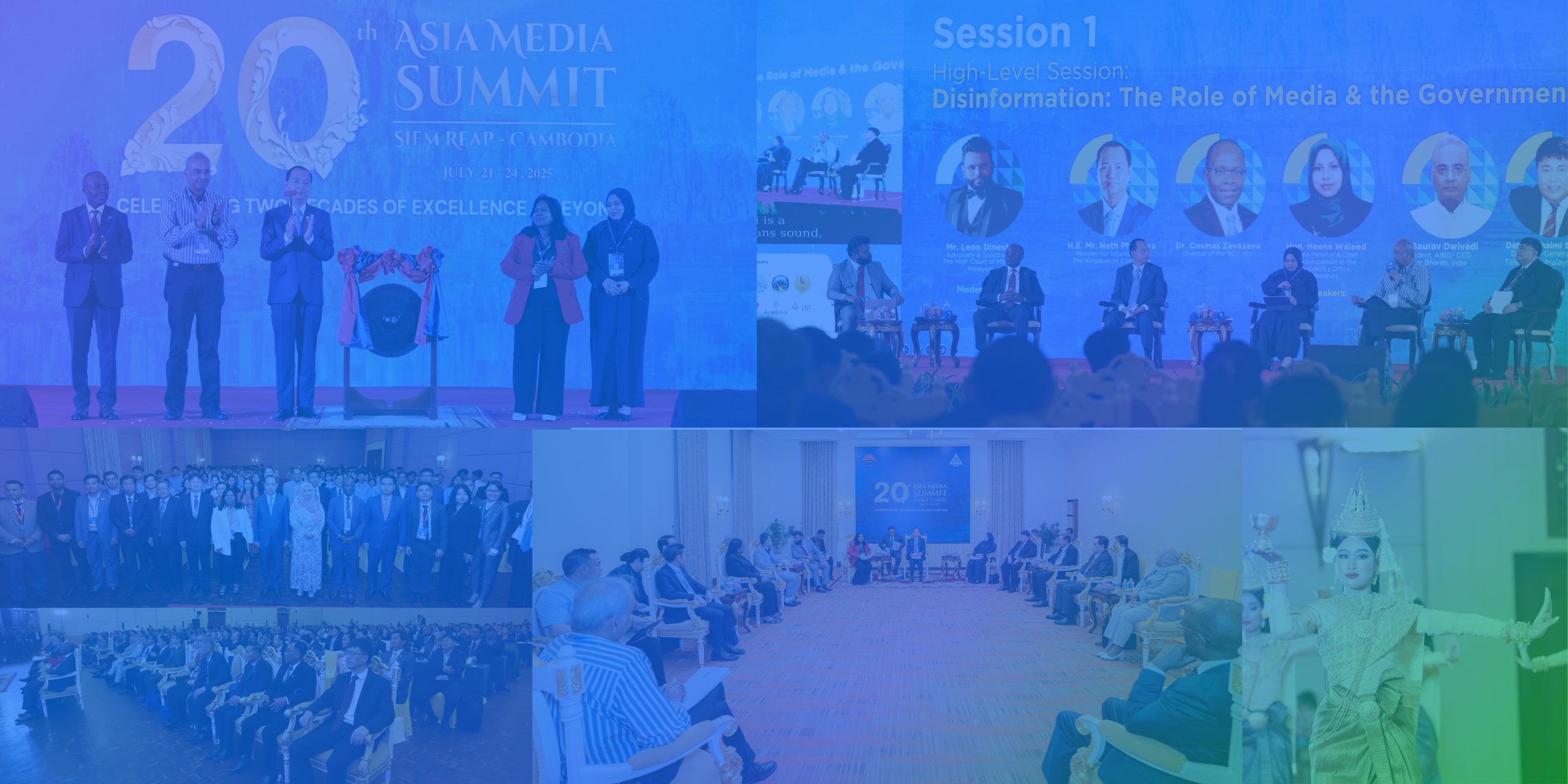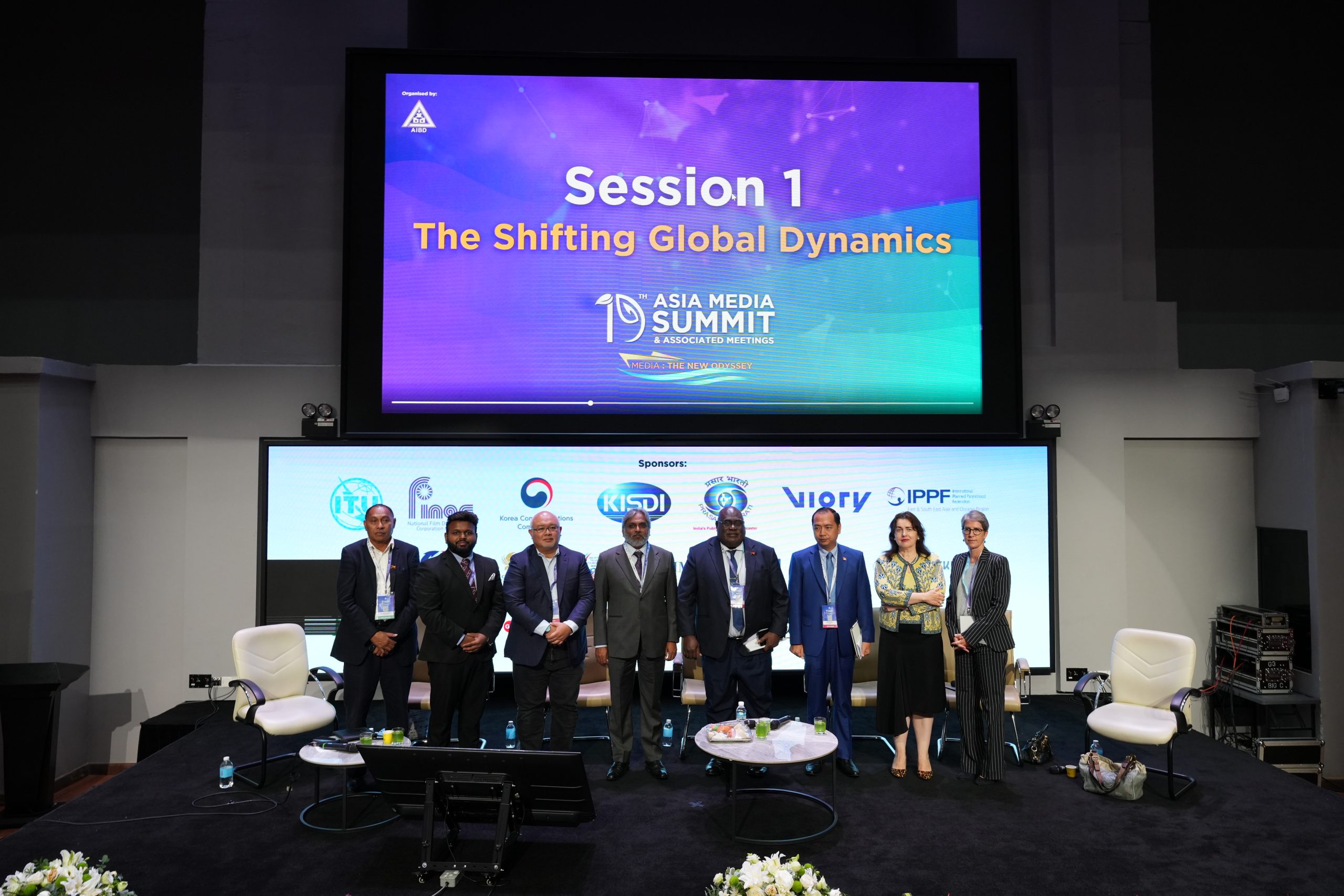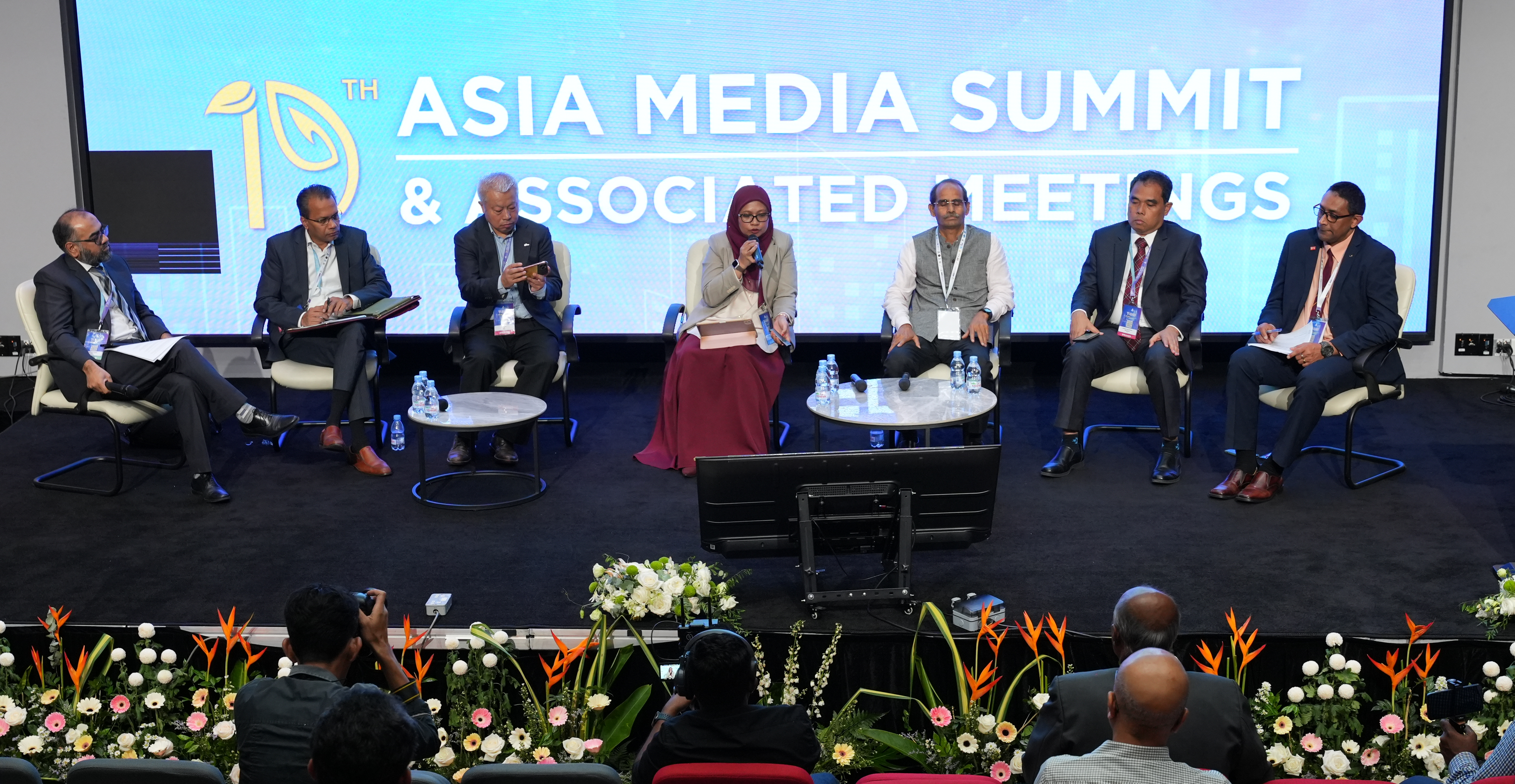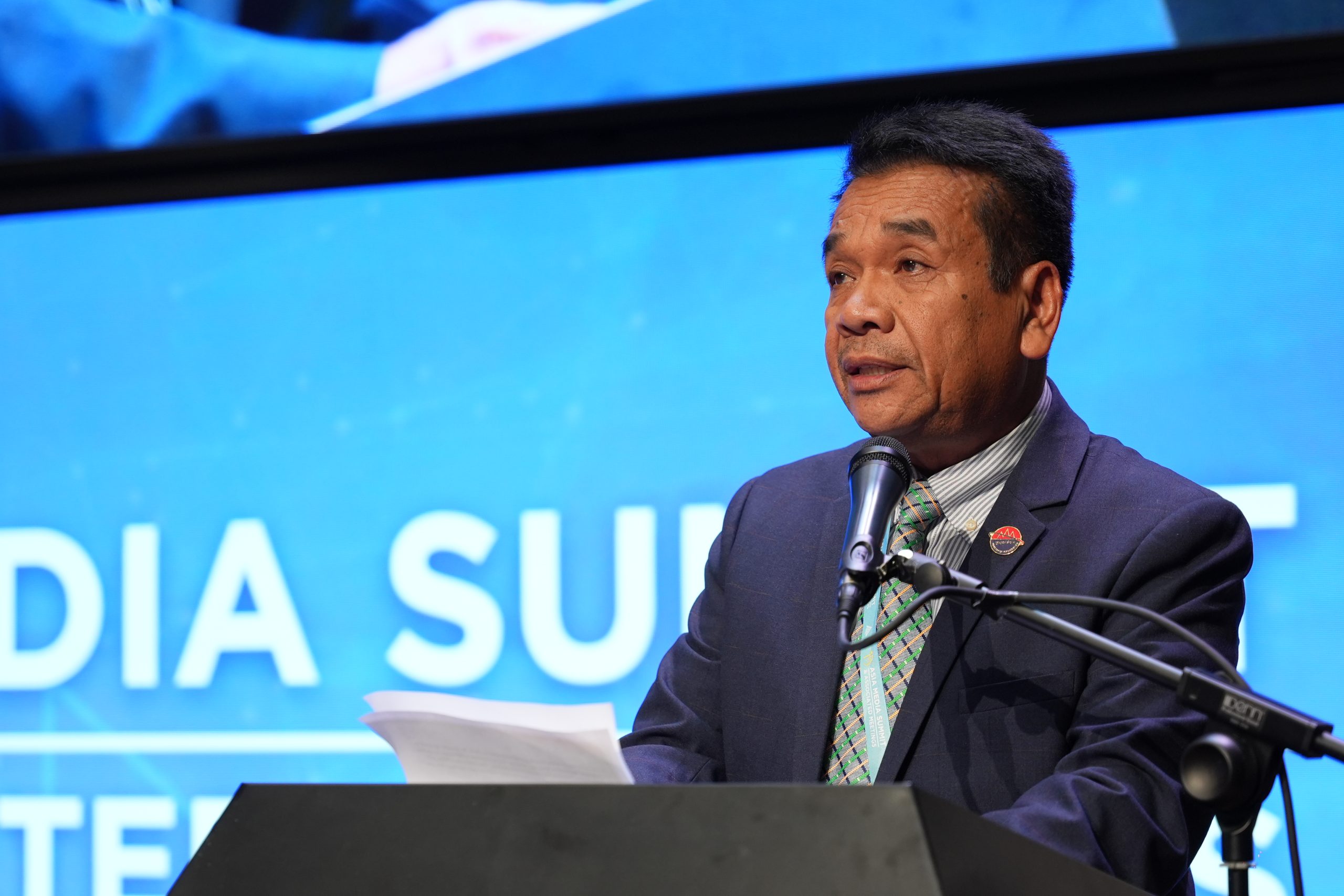ORKUN CHRAN, CAMBODIA!
Thank You, Cambodia As the curtain falls on the 20th
Pre-Summit Workshops Spark Dialogue at AMS 2025
Pre-Summit Regional Workshops Set the Momentum for AMS 2025Siem Reap,
AMS 2025 Pre-Summit Workshop sponsors
It is with great appreciation that we partner with exceptional
Cambodia Welcomes you to the 20th Asia Media Summit 2025
The Asia-Pacific Institute for Broadcasting Development (AIBD) is honoured to
Official Announcement: AMS 2025!
We are proud to share that AIBD and the Ministry
Ministers and Stakeholders Discuss Media Shifting Global Dynamics at the 19th Asia Media Summit High-Level Dialogue
By Dinnierose Raiko Media plays a pivotal role in narratives that
Embracing Emerging Technologies: Shaping the Future of Broadcasting
The session at the Asia Media Summit on "Capitalizing on
Cambodia is advocating for an inclusive, responsible & forward-thinking media landscape in the region
By Monica Phang, Programme Manager, AIBD The Kingdom of Cambodia would












